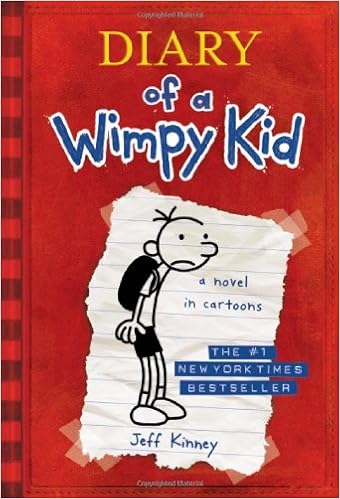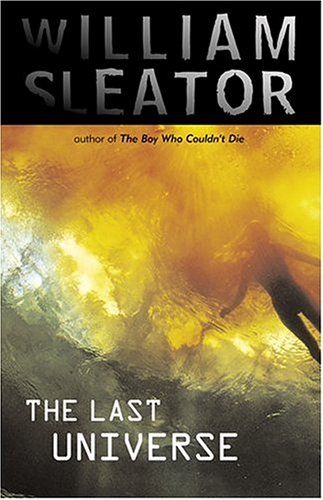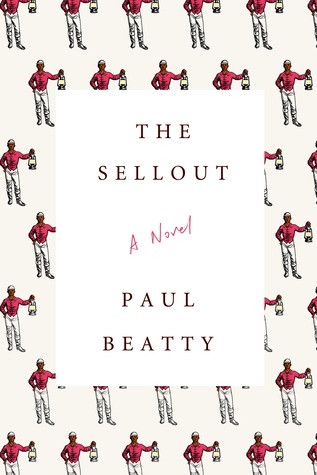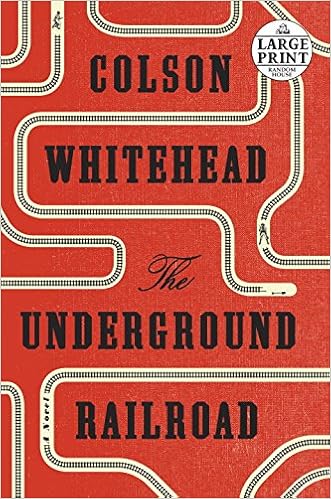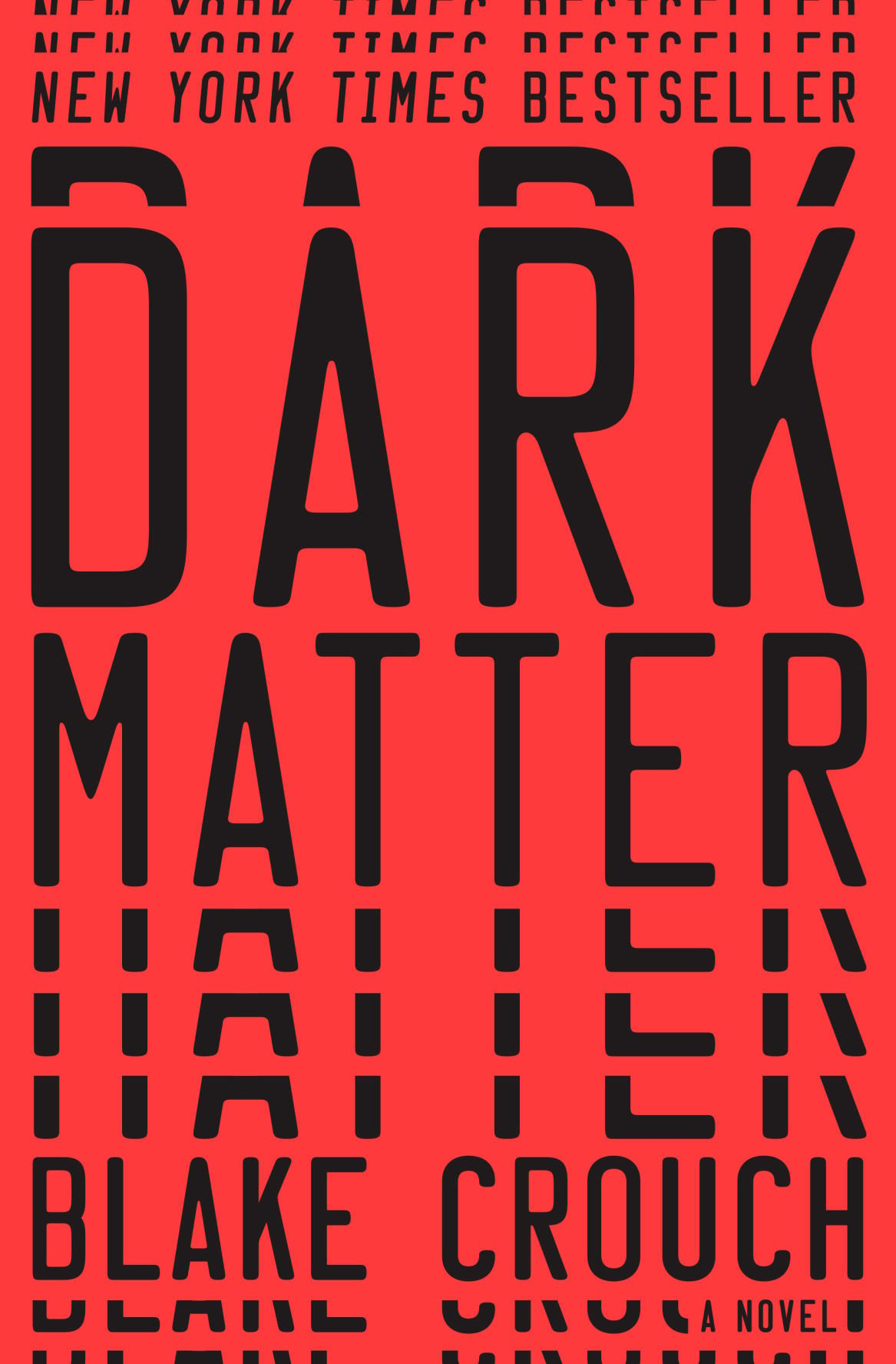 Blake Crouch's Dark Matter is a well-oiled plot machine, written with the purpose of being a best seller, and at that it succeeds. And succeeds entertainingly, I might add, but only because it ingeniously makes use of science - quantum mechanics - and not because of any big ideas or strong characters. Those last two are mostly missing. Everything that happens and exists in this fast-paced novel (well, mostly everything) is for the purpose of reaching that conclusion. Crouch's prose is barren of superfluous detail, which means that there may not be a lot to contemplate from these pages long after you've closed this book, but you will be entertained while reading it.
Blake Crouch's Dark Matter is a well-oiled plot machine, written with the purpose of being a best seller, and at that it succeeds. And succeeds entertainingly, I might add, but only because it ingeniously makes use of science - quantum mechanics - and not because of any big ideas or strong characters. Those last two are mostly missing. Everything that happens and exists in this fast-paced novel (well, mostly everything) is for the purpose of reaching that conclusion. Crouch's prose is barren of superfluous detail, which means that there may not be a lot to contemplate from these pages long after you've closed this book, but you will be entertained while reading it.For me, the novel doesn't really get good until a third of the way in, and even then it sputters a bit before picking up in the last quarter or so. The early parts of the book establish that Crouch is a good writer. He's an economical writer, in the vein of Dean Koontz, with one sentence paragraphs, but his prose is not terse in the vein of Hemingway - Crouch makes use of luxurious flourishes within his brief paragraphs. What stood out to me was how entertaining Crouch's prose was in the early sections of the novel. The opening chapter does its plot job of expository work. It lets us know the main character is Jason Derullo, a professor who sacrificed big money and more important work for a family. His wife, Daniela, has similarly sacrificed the life of a successful artist for her family. The two of them have a son, Charlie. And Jason's former best friend, Ryan, is out celebrating the big science award that could have been Jason's had he chosen a different path. Funny how books and movies portray life in such black and white terms. You either have a perfect family or career success. There's no in between.
Anyway, what these opening moments do a good job of is establishing key plot points. What they do not do a great job at is developing characters with any depth. Though Crouch makes some attempts at giving Daniela depth, he largely falls short. That Jason madly loves her, even after fifteen years of marriage, is a key to the story's credibility, but in that Crouch also falls short. These characters are mainly names, representations of ideas - Daniela the beautiful, loving wife, and Charlie, the son, the product of their love. Jason can't be quantified so simply because he's the main character of the story, but he isn't blessed with much depth either, despite having a brilliant scientific mind.
The plot wheels turn as, after describing his family life, Jason becomes abducted and knocked unconscious by somebody whose identity is fairly obvious from the get go, but Jason won't realize it until two-thirds of the way through. He wakes up in a world that's very similar, but different. Any fan of science fiction would realize what's happened to Jason right away, but it takes the novel about one hundred pages to finally explain it. And it's a shame, because between Jason waking up in a different world and realizing what's going on, the novel sputters. When it does get into the science parts, all of a sudden the novel comes to life. It becomes enjoyable for a while, stalls again, and then in the finale inserts a new twist that makes it enjoyable yet again. For the ingenious ways that Crouch makes use of quantum mechanics in his plot, I would say this is an entertaining read, and a quick one. If you read this as just an entertainment, you'll find it enjoyable. The problems come when you expect a little more depth, more contemplation of bigger ideas, because here Crouch fails to deliver.
First off, Crouch's prose is a double-edged sword. Writing all of those one sentence paragraphs helps it move along at a brisk pace and keeps the pages turning, as its meant to. Yet, it has the drawback of preventing strong character development, and it also hinders the emotional impact of the story. When Jason is first abducted, a great writer would make the reader feel afraid. I did not feel afraid for Jason. Perhaps it's because his character wasn't made real enough for me, but it could also be that I could see the rails upon which the plot was placed. The fact that Jason decided to walk back home the long way, the more dangerous way, made it all too obvious. I felt I was being played, and any emotional urgency was removed. Ditto the love Jason and Daniela feel. Crouch provides some mixed messages about how Jason feels about his marriage early on, such that when Jason decides later that Daniela is his purpose in life, it's not believable. Crouch's economical prose did not allow Daniela to become fleshed out as a person.
In terms of plot, understanding that Jason wants nothing more than to be with Daniela - his Daniela - is key to enjoying what happens. Failing to add much complexity to the character of Daniela does not allow the reader to connect with her, or Jason's desire to be with her, very strongly. There is some attempt early on at making her human. She has bouts of depression, but not much more than that. Later in the novel she turns into little more than a strikingly beautiful woman, an object of desire. She does as the plot requires - trusts rather than asks questions.
In terms of bigger ideas, Crouch largely leaves these off the table as well. There are moments, understandably, of identity crisis. When seeing other versions of yourself, of your world, your apt to wonder who you are. Outside of identity, Crouch does not dig too deeply into the complexities of human thought and feeling. In Jason's despairing situation, for example, he never wavers in the fact that he wants Daniela back - his Daniela. This seems to position Crouch into suggesting that there are soul mates, and that once one finds this true love nothing could get in the way of it. This, although it is known that people, in desperate situations, are likely to revert to survival instincts. Jason is made too pure of heart to accept the offer of love from his companion on his bizarre journey, or to even give it any thought. To go in that direction would take a braver writer.
Still, I think most people would be willing to accept the premise of the novel at its surface and enjoy it as the thriller it is. And it is an entertaining thriller. My review points out many of its shortcomings, but as a plot-driven sci-fi action story, it is well-done, with ingenious imaginings of what might happen if quantum technology is used as it is here. I find that the novel is a great medium to teach quantum mechanics, the basics at least, to a broader population. Crouch explains it in understandable ways, and even adds a little to my understanding of it. William Sleator's The Last Universe is another novel that does a nice job of explaining quantum. While Sleator's novel does not feature the ingenious plotting of Crouch's novel, one thing Sleator succeeds at that Crouch does not is taking a complex look at the human element. Sleator also takes bigger risks. If somehow the two authors could merge into one, they might write one tremendous novel based on quantum mechanics.

